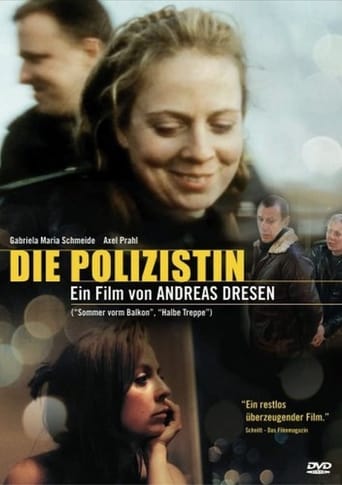inez_fernandez
The film, The Policewoman, depicts poverty that every country somehow experiences in one way or another. Like other films that discusses poverty, it justifies that the deprived are not always bad and that they have reasonable motives why they do vicious things—that they are only victims of circumstances that pushes them to commit crimes. But what is different in this film is that the protagonist, Anne, is not the usual crime busting type of characters. In fact, she is somehow an ally of the criminals because she lets them free and then "helps" them change. She is not bothers by the idea that she is no longer a policewoman that should keep peace and order in the society alone, but instead more if a social worker who even takes care of an old lady who keeps on escaping in the institution she stays at. As if Anne already loses hope in the government that in her own way, initiates to change the society.Anne is portrayed as an independent woman . She lives on her own and is supported by no one. She is free-willed and takes matters into her own hands. But still, it is seen in the film how she can be incapable for her job. Her colleagues constantly remind her to grow a thicker skin because she gets too emotional and too attached to those whom she encounters. She is too idealistic to find the good in criminals by helping them even off duty.In the aspect of cinematography of the film, Dresen, together with Michael Hammon, the director of photography, is very successful in creating the appropriate mood of the film by the establishing shots of the high rise buildings and empty streets of the gloomy city of Rostock. The film has a documentary feel because of the grainy picture. Hammon also gave a more humane touch to the film by using a lot of hand held camera shots as well as tracking and pans. The film is very moving because of the abundant reaction shots which make the audience feel the characters' emotions.The powerful cast even adds the success of the film. It would not have been as successful if not for their marvelous portrayal of their roles. Laila Stieler's screenplay is equally as excellent as all the aspects that made the film possible. It was not at all dragging nor boring. The film proves that social change is still possible with someone like Anne who still do not lose hope in our society.
walter004
i would never have thought that it would be possible to make such an impressive movie without any music. but it is. just the pictures. watch out for that picture: anne talking with that little boy benny 'bout the soul. really strong. might make you feel different.
andre-71
Wow! I have seen so many bad low budget films lately, but this one is great. The very realistic portrayal of police life in a city on the East German coast is a strong contrast to other crime movies or series. I loved the main actress and the absolute rejection of any prevalent cliché about the police. This film is realistic like a documentation and entertaining like a drama at the same time. A perfect tradeoff!
JW-30
The simple hand camera both gives some almost documentary feeling to this film, and also relates to the dogma films.Did you ever get bored of those hollywood-style cop flicks with brawny guys who get assignments james bond would be envious of? Fed up with the married-living-single cop, the divorced-but-family-man, the personified doughnut and the tough hunter? Ever wondered how the real police work is like?Well, for germany, this film shows you. Set in the north between west germany and east germany, former DDR, an laid off post office clerk starts her job, fresh from policeschool. She quickly finds her way around the usual customers, and becomes accustomed to life as a policewoman... but this is not much fun.Other german crime films like Derrick, Der Alte et cetera have dignified officers talking calmly with suspects. These cops here have to deal with the lowest on the social ladder. Good dialogue and realism makes this an interesting view, even more if you know that part of germany a bit.


